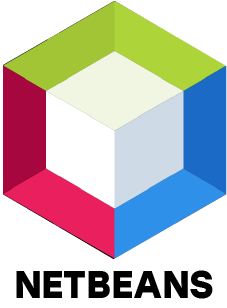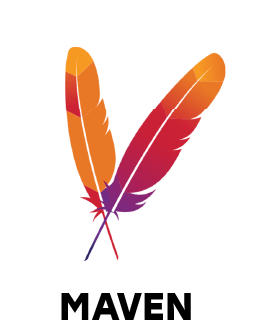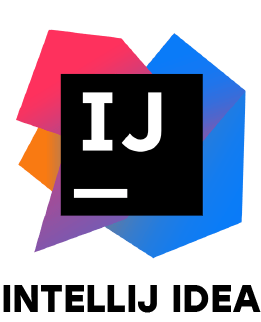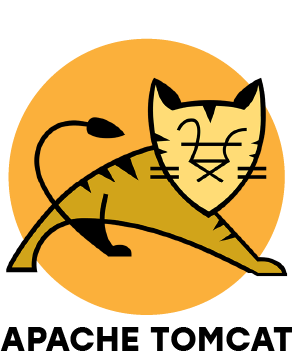The full Java Program Courses are covered by Java Training. With this course, you can build your skills to become an expert with this Java course, containing all major areas of Java programming such as Core Java, SOA, Java 8, Java EE, J2EE, Spring Frameworks, JDBC Architecture, and JUnit. Throughout our Java Training in Trivandrum course, we have also responded to key questions of the java interview, J2EE interview, and several additional Java concept questions. The Java Training Academy offers students the principles necessary to become a Java professional with Oracle certification. This course covers, among other fundamental aspects, arrays, loops, functions, terms of use, exceptions, threading, recursion, object-oriented programming, modularity, cloud services, frameworks, and application development. In order to help the learners to design and deliver apps for real-time clients and projects, this training program is the Best Java Training.
Additional Info
Java artificial language was originally developed by Sun Microsystems that was initiated by James goose and discharged in as a core element of Sun Microsystems Java platform (Java 1.0 [J2SE]). The latest unharness of the Java customary Edition is Java SE eight. With the advancement of Java and its widespread quality, multiple configurations were engineered to suit varied kinds of platforms. As an example J2EE for Enterprise Applications, J2ME for Mobile Applications. The new J2 versions were renamed as Java SE, Java EE, and Java American state severally. Java is certain to be Write Once, Run anyplace.
- Object-Oriented :
In Java, everything is Associate in Nursing Object. Java is often simply extended since it supports the article model.
- Platform freelance :
In contrast to several alternative programming languages as well as C and C++, once Java is compiled, it's not compiled into the platform-specific machine, rather into platform-independent computer memory unit code. This computer memory unit code is distributed over the net and understood by the Virtual Machine (JVM) on whichever platform it's being run on.
- Simple :
Easy Java is intended to be simple to find out. If you perceive the essential conception of OOP Java, it'd be simple to master.
- Secure :
With Java's secure feature it permits the development of virus-free, tamper-free systems. Authentication techniques square measure supported public-key secret writing.
- Architecture-neutral :
Java compiler generates Associate in Nursing architecture-neutral object file format, which makes the compiled code feasible on several processors, with the presence of a Java runtime system.
- Portable :
Being architecture-neutral and having no implementation-dependent aspects of the specification makes Java transportable. Compiler in Java is written in ANSI C with a clean movability boundary, that could be a POSIX set.
- Robust :
Java makes a shot to eliminate fallible things by accentuation primarily compile-time error checking and runtime checking.
- Multithreaded :
With Java's multithreaded feature it's doable to put in writing programs that may perform several tasks at the same time. This style feature permits the developers to construct interactive applications that may run swimmingly.
- Interpreted :
Java computer memory unit code is translated on the fly to native machine directions. The event method is an additional fast Associate in Nursing analytical since the linking is a progressive and lightweight method.
- High Performance :
With the utilization of Just-In-Time compilers, Java permits high performance.
- Distributed :
Java is intended for the distributed atmosphere of the net.
- Dynamic :
Java is taken into account to be additional dynamic than C or C++ since it's designed to adapt to the Associate in the Nursing evolving atmosphere. Java programs will carry an intensive quantity of run-time info that may be accustomed to verify and resolve accesses to things on run-time.
Java Versions :
Many java versions are free until now. This stable release of Java is Java SE 10.
- JDK Alpha and Beta (1995)
- JDK 1.0 (23rd January 1996)
- JDK 1.1 (19th Feb one997)
- J2SE 1.2 (8th Dec 1998)
- J2SE 1.3 (8th May 2000)
- J2SE 1.4 (6th Feb 2002)
- J2SE 5.0 (30th Sept 2004)
- Java SE 6 (11th Dec 2006)
- Java SE 7 (28th July 2011)
- Java SE 8 (18th Mar 2014)
- Java SE 9 (21st Sept 2017)
- Java SE 10 (20th March 2018)
- Java SE 11 (September 2018)
- Java SE 12 (March 2019)
- Java SE 13 (September 2019)
- Java SE 14 (Mar 2020)
- Java SE 15 (September 2020)
- Java SE 16 (Mar 2021)
- Java SE 17 (September 2021)
- Java SE 18 (to be released by March 2022)
Since Java SE 8 unleash, the Oracle corporation follows a pattern within which each even version is unleashed in March month associate degreed an odd version free in September month.
What is Java used for?
Tools :
Components Of Java Programming Language :
A Java programmer writes a program in an exceedingly human-readable language known as ASCII text file. Therefore, the hardware or Chips ne'er perceive the ASCII text file written in an artificial language. These computers or chips perceive only 1 factor, which is named machine language or code. These machine codes run at the hardware level. Therefore, it might differ from machine codes for alternative models of hardware.
However, you would like to stress regarding the code, as programming is all regarding the ASCII text file. The machine understands this ASCII text file and interprets them into machine comprehensible code, that is associate possible code. All these functionalities happen within the subsequent 3 Java platform components :
Java Development Kit (JDK) :
JDK could be a software system development environment used for creating applets and Java applications. The total type of JDK is Java Development Kit. Java developers will use it on Windows, macOS, Solaris, and Linux. It's doable to put in quite one JDK version on an identical laptop.
Why use JDK?
Java Virtual Machine (JVM) :
Java Virtual Machine (JVM) is an Associate in the Nursing engine that gives a runtime environment to drive the Java Code or applications. It converts Java bytecode into machine language. JVM could be a part of the Java Run surroundings (JRE). In different programming languages, the compiler produces machine language for a specific system. However, the Java compiler produces code for a Virtual Machine referred to as Java Virtual Machine.
Why JVM?
Java Runtime Environment (JRE) :
JRE could be a piece of computer code that's designed to run different computer code. It contains the category libraries, loader category, and JVM. In easy terms, if you would like to run a Java program, you want JRE. If you're not a computer programmer, you do not get to install JDK, however simply JRE to run Java programs.
Why use JRE?
Types of Java Platforms :
There are four different types of Java programming language platforms :
1. Java Platform, commonplace Edition (Java SE) :
Java SE's API offers the Java programming language's core practicality. It defines all the ideas of kind and objects to high-level categories. It's used for networking, security, information access, graphical computer program (GUI) development, and XML parsing.
2. Java Platform, Enterprise Edition (Java EE) :
The Java EE platform offers AN API and runtime settings for developing and running extremely ascendable, large-scale, multi-tiered, reliable, and secure network applications.
3. Java programing language Platform, small Edition (Java ME) :
The Java ME platform offers AN API and a little-footprint virtual machine running Java programming language applications on small devices, like mobile phones.
4. Java FX :
JavaFX may be a platform for developing made web applications employing a lightweight user-interface API. It uses hardware-accelerated graphics and media engines that facilitate Java make the most of higher-performance shoppers and a contemporary look-and-feel and high-level genus Apis for connecting to networked knowledge sources.








































